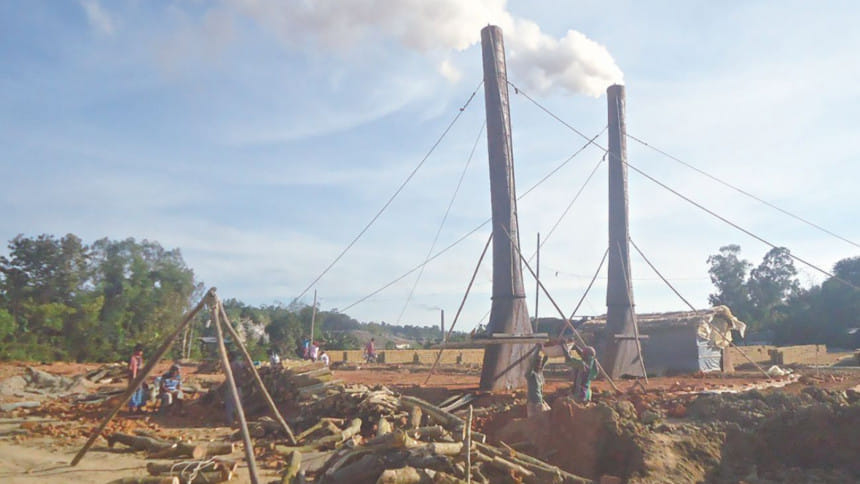Shun burnt bricks to save topsoil

The country must immediately start using environment-friendly alternative hollow blocks instead of conventional bricks to save its fertile topsoil and conserve environment, experts and top officials said at a discussion yesterday.
Turning to alternatives like compressed, hollow, and thermal blocks was crucial in ensuring food security and sustainable development, they said.
The conventional brick manufactured by burning coal and ruining invaluable topsoil has a devastating effect on agricultural production and achieving sustainable development, said Mohammad Abu Sadeque, immediate past director of Housing and Building Research Institute (HBRI).
“An estimated 25 billion pieces of conventional bricks are manufactured in the country every year by damaging 100 million tonnes of topsoil,” he said.
Nagar Unnayan Sangbadik Forum organised the discussion on “Burnt Bricks and Alternatives” in the capital's CIRDAP auditorium.
Sadeque said alternative hollow blocks could be made of river-dredged soil and ferrocement. The blocks also reduce construction cost by at least one third, he added.
Alternative concrete blocks are made using modern technology without burning.
Citing official information, he said the country loses one percent agricultural land annually. As much as 80 percent of the loss is attributed to unplanned rural housing while over 17 percent to brick kilns.
The former HBRI director said around five crore people would face food shortage by 2050 when the country's population would reach 24.5 crore.
Sadeque said the country emits 80 million tonnes of carbon dioxide annually, of which 20 million tonnes is emitted by conventional brick kilns, including 7,900 registered ones. The number of unregistered conventional brick kilns is much higher than the registered ones.
According to him, 58 percent of air pollution in Dhaka comes from conventional brick kilns.
Md Abdul Awal, managing director of The Structural Engineers Limited, a real estate firm, said an estimated 240 million tonnes of coal dust is burnt to manufacture every one million pieces of bricks. He cited the data from the HBRI.
Prof Adil Mohammad Khan, general secretary of Bangladesh Institute of Planners, said loss of per hectare of fertile topsoil causes an economic loss of Tk 31 lakh.
Housing and Public Works Minister Mosharraf Hossain said operation of conventional brick kilns would be stopped by 2020 to save the country's agriculture.
He said the government should offer significant tax incentives to the prospective investors to promote manufacturing of alternative hollow blocks.
The minister mentioned that he would take steps to incorporate use of alternative bricks into a related law.
Nagar Unnayan Sangbadik Forum President Amitosh Pal chaired the discussion.

 For all latest news, follow The Daily Star's Google News channel.
For all latest news, follow The Daily Star's Google News channel. 








Comments